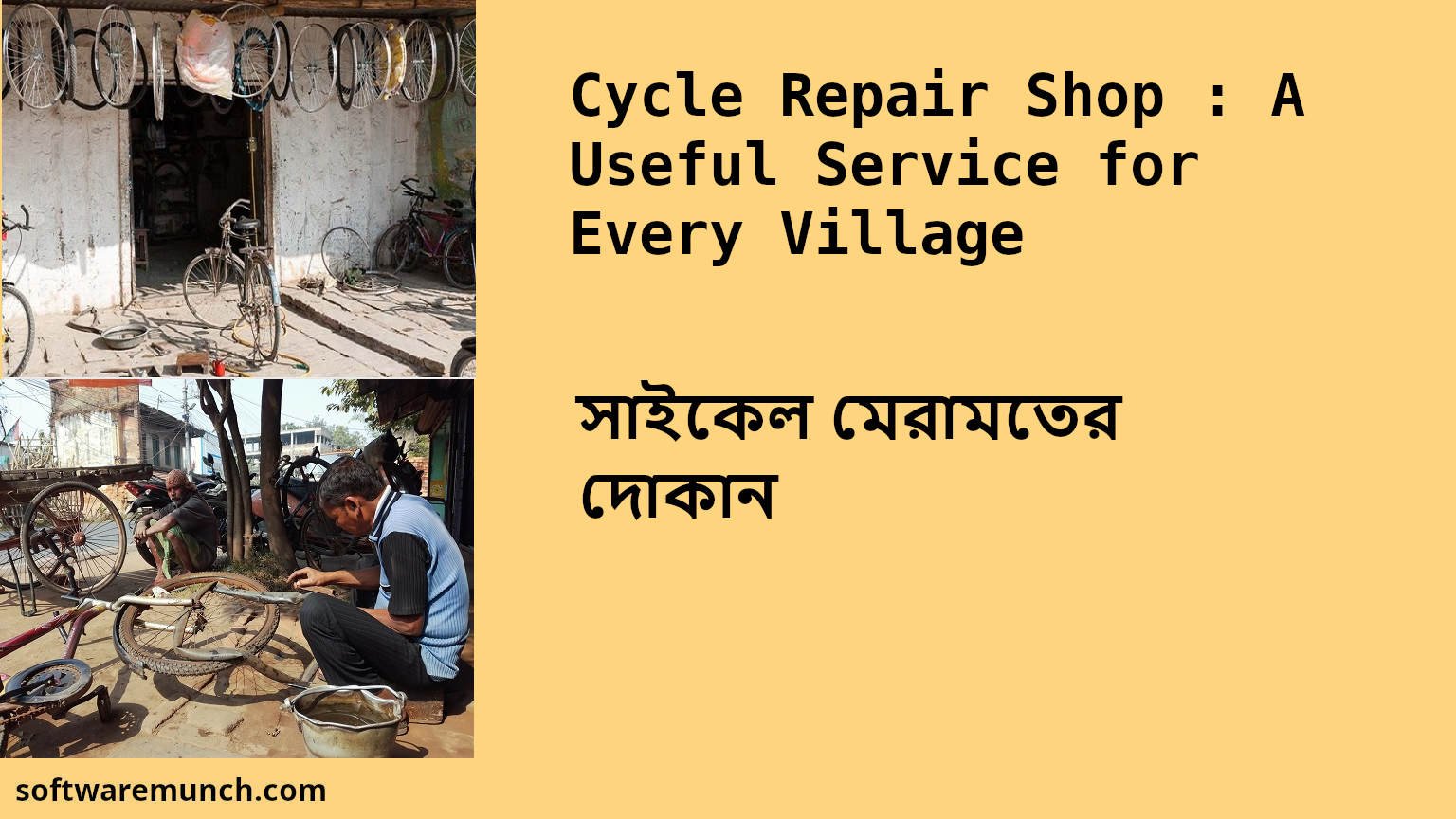In most villages and small towns of india, cycles are still very widely used . Farmers use them to go to their fields, students ride to school, milkmen deliver milk and small shopkeepers use cycles to carry goods. Even if motorbikes are slowly increasing, cycles are still very important because they are cheap, easy to maintain and do not need petrol or any kind of expense every day.
Because of this, a cycle repair shop is a business that never goes out of demand. People may not buy a new cycle every year but repair is needed almost every month, whether it is puncture fixing, brake tightening or chain replacement. Even rural kids have cycles these days , they use just for fun of riding or going to tuition or shops nearby.
How to learn Cycle repair Work
Cycle repairing is not very difficult but it needs practice with hands. In most small towns, young boys learn by working under an experienced cycle mechanic for 6 months to 1 year. This is the most common way to learn.
In Assam, in towns like Hailakandi, Silchar, or Guwahati, and in West Bengal towns like Malda, Murshidabad, or Jalpaiguri there are many old cycle shops where a new learner can work as a helper and learn slowly.
Some NGOs and ITIs (Industrial Training Institutes) also give short vocational training courses in cycle repairing, though they are not very common. Still, the best training is on the job learning.
Components You need to Know
A cycle has many small parts, and a mechanic should know each of them:
- Tyre and tube – puncture repairing, changing new tube.
- Braking system – brake pads, wires and handles.
- Chain and gear – fixing when the chain slips or gets jammed.
- pedals and seat – replacing broken ones.
- Spokes and rim – for wheel balancing.
- Bell, mudguard, stand, carrier etc – small fittings.
Keeping these common spare parts in the shop is necessary, because customers usually want quick service.
Investment Needed
A small cycle repair shop can be started with Rs25000 to Rs50000. Main expenses are:
- A small rented space or a roadside shed.
- Repairing tools like spanners, patches, glue, pump, tyre levers.
- Initial stock of tubes, tyres, brake wires, chains, pedals and bells.
- A hand air-pump and, if possible, a foot-operated pump.
This is not a very big investment compared to other shops.
How to Arrange the investment
Government loan schemes may not directly support such small services. So, common ways are:
- savings from family.
- Borrowing small money from relatives.
- Local cooperative societies or microfinance groups if available.
- some wholesale suppliers give spare parts on credit if you build trust.
Where to buy Spare Parts
In Assam, spare parts can be bought from Guwahati Fancy Bazar, Silchar Fatak Bazar or Nagaon market. In West Bengal, Burrabazar in Kolkata and Siliguri wholesale market have many cycle distributors.
Some brands like Hero, Atlas, Avon and Hercules also have local dealers who supply directly to shops.
License and Permission necessery
For a very small repair shop, usually no heavy license is needed. Only a local trade license from panchayat or municipality may be required while starting nothing is required. This is easy to get and not costly.
Problems and Struggles in the beginning
Running a cycle repair shop also has some struggles:
- income is small in the first few months.
- Work is hard, because repairing tyres and chains requires physical strength.
- Customers sometimes bargain a lot for service charge.
- During rainy season, cycle repair demand increases but working conditions are difficult.
Still once people know your skill and honesty, they will come again and again. Regular students, milkmen, and farmers can become your loyal customers.
Extra Income options
Apart from repair, a cycle shop can earn by:
- Selling new cycles on small commission.
- Selling locks, light and baskets.
- Selling raincoats and school bags during rainy season.
Some mechanics also keep puncture repair service for motorcycles and cars which gives extra income.
Last words
A cycle repair shop is a simple but strong business idea for rural youth. With small investment, basic training, and regular effort, one can earn a steady income. In towns like Hailakandi or Malda where many students and workers still use cycles, such shops are very useful.
It may not make someone rich quickly, but it gives respect, steady income, and an important service to society.
